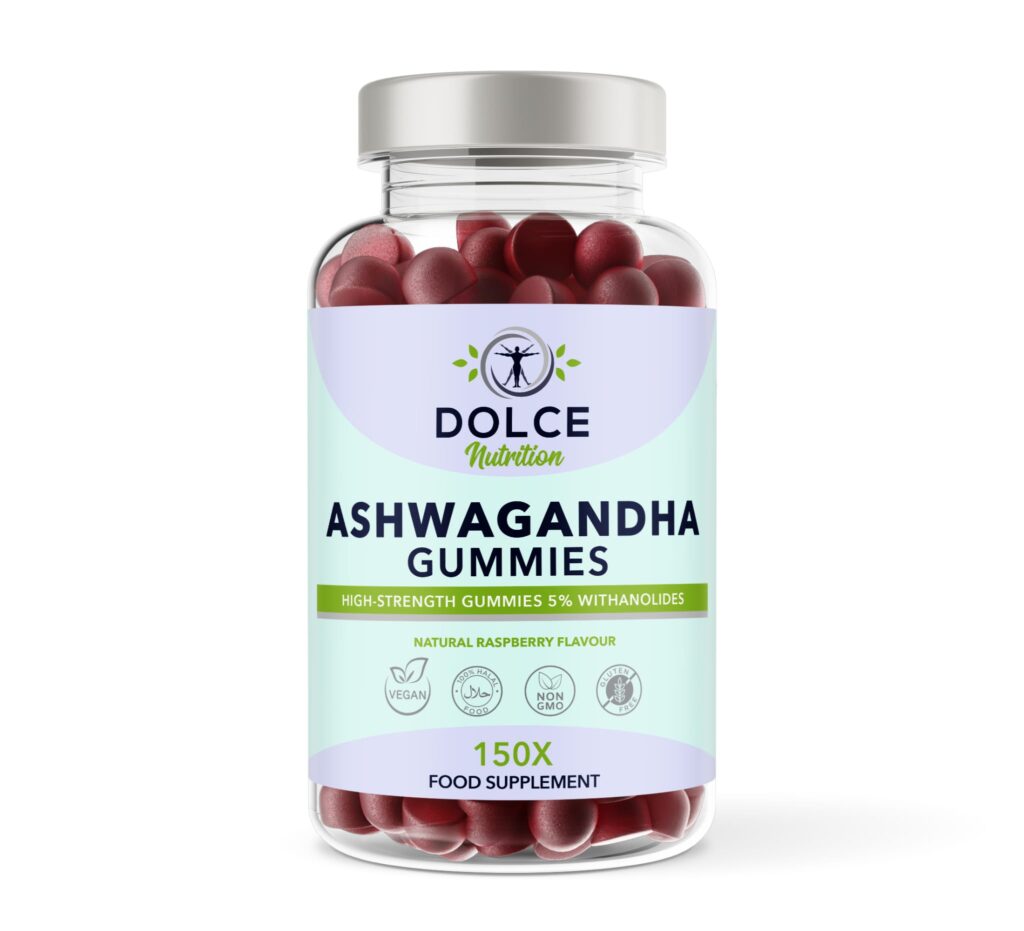Introduction:
Within the realm of natural wellness, Ashwagandha has emerged as a herbal powerhouse, acclaimed for its diverse range of health benefits. Rooted in Ayurvedic tradition, this adaptogenic herb has captured the attention of modern science. In this comprehensive article, we will unravel the scientific evidence supporting the myriad benefits of Ashwagandha, with a special focus on its potential role in the form of Ashwagandha gummies.
Understanding Ashwagandha:
Ashwagandha, scientifically known as Withania somnifera, is a shrub native to India and North Africa. Its name, derived from Sanskrit, translates to the “smell of the horse,” reflecting the herb’s distinct odour and its traditional use in Ayurveda to impart the strength and vitality of a horse to those who consume it.
Benefit #1: Stress Reduction and Anxiety Management
One of the most well-researched aspects of Ashwagandha is its ability to combat stress and alleviate anxiety. A double-blind, placebo-controlled study published in the Indian Journal of Psychological Medicine (Chandrasekhar et al., 2012) investigated the effects of Ashwagandha root extract, specifically rich in withanolides, on stress and anxiety levels in adults. The study revealed a significant reduction in stress scores among participants who received Ashwagandha, underscoring its adaptogenic properties in promoting a balanced stress response.
The adaptogenic nature of Ashwagandha helps the body adapt to stressors by regulating key physiological processes, making it a valuable ally in the battle against modern-day stress.
Benefit #2: Cognitive Function Enhancement
Ashwagandha has been the subject of several studies exploring its potential to enhance cognitive function and memory, attributed in part to its withanolide content. A randomised, double-blind, placebo-controlled trial published in the Journal of Dietary Supplements (Choudhary et al., 2017) found that Ashwagandha supplementation, rich in withanolides, led to improvements in cognitive tasks such as immediate and general memory, sustained attention, and information processing speed. These findings suggest that Ashwagandha, with its withanolides, may play a role in supporting cognitive health and mental clarity.
In a world where cognitive demands are ever-increasing, Ashwagandha, enriched with withanolides, stands out as a natural supplement that may contribute to cognitive resilience.
Benefit #3: Immune System Support
The immune-boosting properties of Ashwagandha, particularly its withanolides, have garnered attention in scientific research. A study published in the Journal of Ethnopharmacology (Winters, 2016) explored the immunomodulatory effects of Ashwagandha extract, highlighting its potential to enhance the activity of immune cells. This immunomodulatory action, driven by withanolides, suggests that Ashwagandha may contribute to overall immune system health, helping the body defend against pathogens and maintain optimal function.
Incorporating Ashwagandha into daily wellness routines may serve as a proactive measure to support immune resilience, particularly during times of heightened health concerns.
Benefit #4: Anti-Inflammatory Effects
Chronic inflammation is a common thread in many health conditions, from arthritis to cardiovascular diseases. Ashwagandha, with its withanolide content, has demonstrated anti-inflammatory properties in various studies. A review published in the Journal of Basic and Clinical Physiology and Pharmacology (Mishra et al., 2000) emphasised the herb’s potential, driven by withanolides, to modulate inflammatory pathways, making it a promising candidate for conditions associated with chronic inflammation.
As an adjunct to a healthy lifestyle, Ashwagandha may contribute to an anti-inflammatory regimen, promoting overall well-being.
Benefit #5: Hormonal Balance
Maintaining hormonal balance is crucial for overall health, and Ashwagandha, enriched with withanolides, has been investigated for its role in hormone regulation, particularly cortisol, the primary stress hormone. A study published in the Journal of the American Nutraceutical Association (Raut et al., 2012) reported that Ashwagandha supplementation led to a significant reduction in cortisol levels. This hormonal balance, influenced by withanolides, is essential for managing stress and promoting overall physiological harmony.
For individuals navigating the demands of modern life, Ashwagandha’s potential to support hormonal equilibrium, driven by withanolides, may be a key element in promoting holistic well-being.
Conclusion:
As we delve into the impressive array of benefits offered by Ashwagandha, with a spotlight on its withanolide content, it’s clear that this adaptogenic herb has earned its place in the realm of natural wellness. Whether it’s stress reduction, cognitive enhancement, immune support, anti-inflammatory effects, or hormonal balance, the scientific evidence supporting Ashwagandha’s efficacy, particularly its withanolides, is robust and growing.
For those seeking a convenient and enjoyable way to incorporate Ashwagandha into their daily routine, the emergence of Ashwagandha gummies provides an exciting solution. By transforming the potent properties of this herbal remedy, with a focus on withanolides, into a delicious and accessible form, Ashwagandha gummies offer a practical avenue for individuals to embrace the benefits of this adaptogenic herb seamlessly.
In the pursuit of holistic well-being, the synergy of science-backed benefits and the convenience of Ashwagandha gummies opens up new possibilities for individuals striving to optimise their health naturally. As with any supplement, it’s advisable to consult with a healthcare professional before integrating Ashwagandha or Ashwagandha gummies into one’s routine, ensuring personalised and informed wellness choices.
References:
- Chandrasekhar, K., Kapoor, J., & Anishetty, S. (2012). A prospective, randomized double-blind, placebo-controlled study of safety and efficacy of a high-concentration full-spectrum extract of Ashwagandha root in reducing stress and anxiety in adults. Indian Journal of Psychological Medicine, 34(3), 255–262.
- Choudhary, D., Bhattacharyya, S., & Bose, S. (2017). Efficacy and Safety of Ashwagandha (Withania somnifera (L.) Dunal) Root Extract in Improving Memory and Cognitive Functions. Journal of Dietary Supplements, 14(6), 599–612.
- Winters, M. (2016). Ancient medicine, modern use: Withania somnifera and its potential role in integrative oncology. Alternative Medicine Review, 21(3), 227–232.
- Mishra, L. C., Singh, B. B., & Dagenais, S. (2000). Scientific basis for the therapeutic use of Withania somnifera (ashwagandha): a review. Alternative Medicine Review, 5(4), 334–346.
- Raut, A. A., Rege, N. N., Tadvi, F. M., Solanki, P. V., Kene, K. R., Shirolkar, S. G., Pandey, S. N., Vaidya, R. A., Vaidya, A. B. (2012). Exploratory study to evaluate tolerability, safety, and activity of Ashwagandha (Withania somnifera) in healthy volunteers. Journal of Ayurveda and Integrative Medicine, 3(3), 111-114.

Ashwagandha Gummies
Unwind and rejuvenate with Dolce Nutrition Ashwagandha Gummies. These delicious raspberry-flavored gummies offer a natural way to incorporate this ancient Ayurvedic herb into your daily routine.

